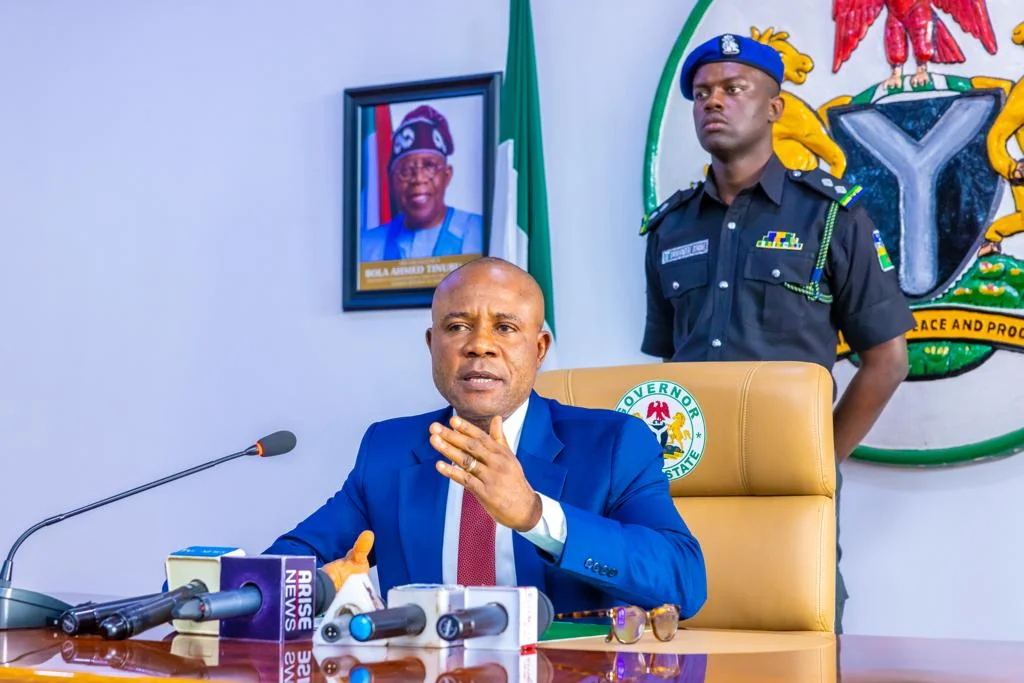Nigeria’s presidential federalism, criticized by Governor Dr. Peter Mbah of Enugu State, for its disproportionate allocation of powers and financial resources to the federal government, is identified as a significant obstacle to the timely advancement of state-level socio-economic initiatives.
Drawing an analogy, Mbah compared Nigeria’s federalism to a father with 36 children, stressing that while some are overworked to the point of exhaustion, the current adversity presents a chance to revamp the nation’s production tactics.
While maintaining his stance, he commended the transfer of railways and power to the Concurrent List, facilitating state involvement, and praised the President Bola Tinubu Administration’s positive outlook on decentralizing more authority to the federating units.
The governor stated these in a public lecture entitled “Enugu State, Nigeria: New Political Leadership; Bold Economic Vision – Spotlight on the Health and Education Strategies” which he delivered at the London School of Economics, LSE.
Mbah said, “The choice of a presidential system might have been well-informed, shaped by the inherent benefits of federalism in other countries with population as vast and diverse as ours. But our presidential federalism has bred a system where revenue is excessively domiciled at the centre rather than in the states – or regions.
“Our federal system evokes an imagery akin to someone with 36 children, but who allows just about five to constantly till the family’s farmland until those few eventually became frail from age and unable to farm the land anymore. Is it then surprising that the family has fallen into hard times? Shouldn’t that have been an opportunity for the family to overhaul its production strategy given the opportunities that could be borne out of crises sometimes?
“Such hypothetical scenario can only breed dire economic prospects for the family and should ordinarily push its hard-pressed members to take some swift and critical actions to improve their precarious financial state. The challenge, as we have seen, is finding the will and having the capacity to do so,” he stated.
Read also: Mbah Hails Tinubu For Ensuring Safety On Enugu Roads
Mbah stressed that ongoing talks about further devolution notwithstanding, leaders at every echelon possess the potential to effect positive change through the exercise of political determination and the adoption of leadership strategies focused on the needs of the people and transcending conventional boundaries.
“At the heart of our socio-economic challenge is the issue of leadership deficit. This has always been the bane of our development. Despite widespread clamour and yearning for leaders with transcendental values, leadership failure remains a recurring decimal.
“A good leader is basically a visionary and should not merely peddle hope, but demonstrate a capacity to translate dreams into reality. This briefly summarizes our turnaround tale in Enugu State in roughly nine months.
“The single boldest projection that encapsulates what we intend to accomplish is our target to grow the economy of Enugu State seven-fold. Simply put, our vision is to grow the state’s GDP from $4.4bn – that we met – to at least $30bn in the next four to eight years. Another bold plan is the commitment to attain a zero per cent poverty headcount index in Enugu State,” he stated.
Mbah underscored that the substantial investments allocated by his administration to bolster security, healthcare, education, agriculture, and water infrastructure, among other areas, were fundamental aspects of their comprehensive plan to rejuvenate the state’s fortunes within the confines of the prevailing constitutional framework.

